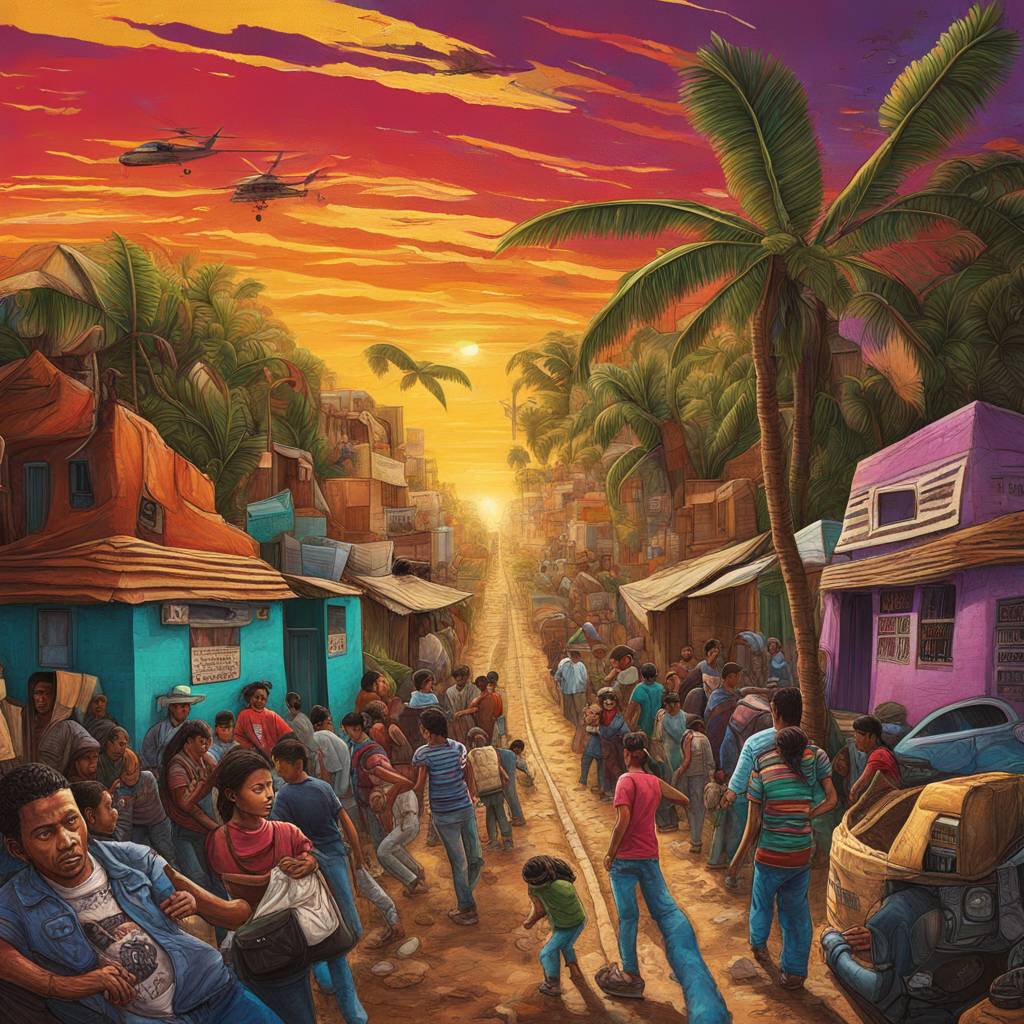In February 2024, American activist Laura Loomer embarked on an investigative trip to the Darién Gap in Panama, aiming to report on what she saw as an invasion of America by migrants. The Darién Gap is a treacherous jungle region between Panama and Colombia, where many refugees must pass through on their journey to seek asylum. Loomer encountered Venezuelan migrants during her expedition and viewed the situation as a conflict or war.
The writer, who had his own encounter with Venezuelan migrants in Mexico, describes how they faced challenges and mistreatment as they made their way through the country. Despite President Joe Biden being accused of aiding migrants, the reality was that the journey remained challenging and dangerous for the refugees, particularly as presidential elections were approaching in both the US and Mexico. The repression of migrants and poor people was evident as they faced hardships and crimes during their journey.
The writer decided to assist his Venezuelan friends by picking them up in Chiapas after they were detained in Ciudad Hidalgo. Despite facing obstacles due to missing documents and checkpoints, he managed to reunite with them eventually. The journey was complicated by bribery demands from Mexican officials, threats of legal repercussions, and the constant fear of being detained or extorted for assisting the refugees.
As they continued their journey, the writer and his friends encountered more challenges, including being harassed by Mexican authorities, facing bribery demands, and navigating through multiple checkpoints. The writer’s attempts to help the migrants were met with suspicion, threats, and accusations of trafficking. The harsh reality of the migrant experience in Mexico, characterized by corruption, extortion, and abuse, highlighted the perilous nature of the journey.
Despite the difficulties, the writer persisted in trying to assist his friends in reaching their destination. Through encounters with corrupt officials, challenges at checkpoints, and the threat of legal consequences, the writer and the migrants struggled to make progress. The ongoing obstacles, extortion, and harassment they faced along the way underscored the inhumane treatment of migrants and the criminalization of those who seek to help them.
In reflecting on the broader context of migration and the criminalization of solidarity, the writer highlights the systemic issues that contribute to the perilous journey faced by refugees. The selective criminalization of border crossings, the role of the US in creating political and economic conditions that force people to flee, and the impact of deterrence strategies on migrants and those who seek to assist them all contribute to a complex and dangerous situation. The writer emphasizes the need for humanity and solidarity in addressing the challenges faced by refugees in their quest for a better life.
Ultimately, the writer’s experience with assisting Venezuelan migrants in Mexico sheds light on the harsh realities of the migration journey and the obstacles faced by those seeking refuge. The ongoing battle against corruption, extortion, and mistreatment highlights the need for a more humane and compassionate approach to addressing the needs of refugees. As elections approach in the US and Mexico, the writer recognizes that the struggle for migrant rights and dignity is ongoing and essential in the face of continued challenges and obstacles.













